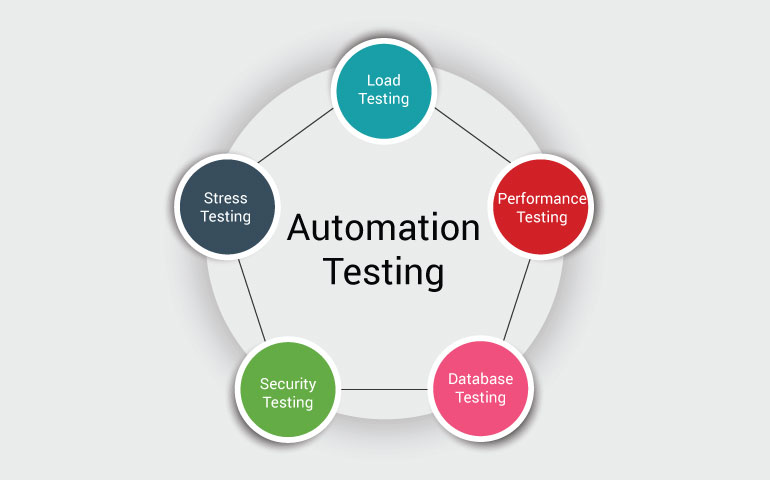QA Automation Testing
Quality Assurance Automation, also known as Test Automation, is the process of improving software products. Although developers follow best coding practices to avoid mistakes, finished software always has defects. Manual testing cannot find every error or product defect.
This is where QA automation comes in handy. Automated tests may be run numerous times without the need for human assistance after they're completed. Agile and DevOps methodologies are gaining popularity among businesses that want to implement them.
Quality Assurance automation tools will be among the most popular technologies in 2024, according to Gartner. By 2024, the worldwide market for Quality Assurance automation tools is expected to reach $28.8 billion.
What is QA Automation?
Quality assurance automation (or automated testing) is the process of using tools to automate software and mobile app tests that a human previously did. Automation tools mainly repeat tasks that would be monotonous for humans, like checking if links work or if buttons respond correctly. In other words, Quality Assurance automation allows the software testing team to focus on more complicated (or sophisticated) test cases.
How Does QA Automation Work?
QA automation employs testing scripts that can be run more than once. QA automation tools do the assessments and communicate the test outcomes to the Quality Assurance (QA) team through pre-determined steps.
Is it Possible to Substitute an Experienced Tester with a QA Automation?
No, the testing crew will still be required to write the QA test scripts before deploying the software on its code. While automated testing is taking place, generating test scripts still necessitates knowledge of the programming language.
Advantages of Quality Assurance Automation
What are the advantages of QA automation? Let's look at this in greater detail in the next section. If we take a closer look at the benefits that QA automation has for businesses, we can see that:
Reduces Testing Time and Cost
Constant product upgrades need to be tested continuously. Software testing is required for each product feature and bug removal. Manual testing slows down the entire procedure and might cause delays in delivering updates to your customers. As a consequence, automated QA testing comes into play. This is where QA automation comes in handy.
Automated testing allows you to run the same test scripts multiple times on different hardware and software configurations. Automated scripts can be run 24/7, which saves time. Automated tests are also faster than human testers, reducing testing time and costs.
Improves Quality of Product
QA automation offers companies the ability to increase their testing process coverage. By running automated test cases, QA teams can now free up time and test products on multiple platforms simultaneously. Manual testing, done by humans, is more limited in scope and cannot provide complete results.
Automation testing allows for a comprehensive exploration of an application as well as evaluation of the data tables, memory data, and internal file structure. This methodology can lead to improved quality and performance in the final software product.
Automated regression testing can test every application feature, which is much more challenging to do manually.
Utilization of Better Resource
Automated testing allows QA team members to use their skills and knowledge in product testing. Automation testing helps run regression and functional test cases without human intervention. The test automation also reduces the need for a large QA staff. This can save time and money by reducing the time and money it takes to recruit and train software testers regularly.
According to a survey, automated testing allows experienced QA staff to produce improved test cases, enhancing product quality. This means they're devoting less time to daily and regular tests.
Suitable for DevOps and CI/CD
Manual testing is challenging to manage as software code becomes more advanced or when there are an increasing number of test cases. Automated testing solves this challenge.
Development organizations find it much easier to go into Continuous Improvement & Delivery (or CI/CD mode) with QA test automation. Automation allows for continuous testing, which is required for DevOps.
Challenges of Quality Assurance Automation
The following section will explore the difficulties of QA automation in more depth. There are many difficulties that quality assurance automation needs to overcome. The following are four major problems:
Human Dependency
Though people might talk about automated testing as if it can do everything, test automation tools are not advanced enough to replace human testers. Automated testing can help make a tester's job more accessible, but it cannot compare to the work of a high-quality tester.
Furthermore, automated QA testing also necessitates employees with excellent programming skills and awareness of testing toolsets. Also, software developers cannot exchange a competent software tester for writing automation test scripts.
Initial Cost of Setup
Even though product businesses find it challenging to build and set up an automated test framework, they do so because it is crucial for driving continuous improvement. The initial setup costs of test automation frameworks are significant.
Furthermore, businesses demand workers who are experts in testing tools and programming languages for their company.
Choosing the Right Tool
With so many automated testing solutions available on the market, picking the correct one might be difficult. Every automation tool is not suitable for your apps or software architecture.
Ineffective Collaboration of Team
Software testers must work collaboratively and effectively with developers, business analysts, and project managers in order to obtain the best results. Ineffective team collaboration might cause both development and testing efforts to be delayed.
Benefits
Quality Assurance Automation is essential for a number of reasons. It can improve the overall coverage of the testing process, allow for better resource utilization, and be better suited for CI/CD and DevOps. Additionally, it can help reduce the dependence on manual testing, which can be pretty challenging and time-consuming. While there are some challenges to QA automation, such as initial setup costs and selecting the right tool, its benefits far outweigh its drawbacks. So, if you're looking to improve your software testing process, this automation is a great place to start.








